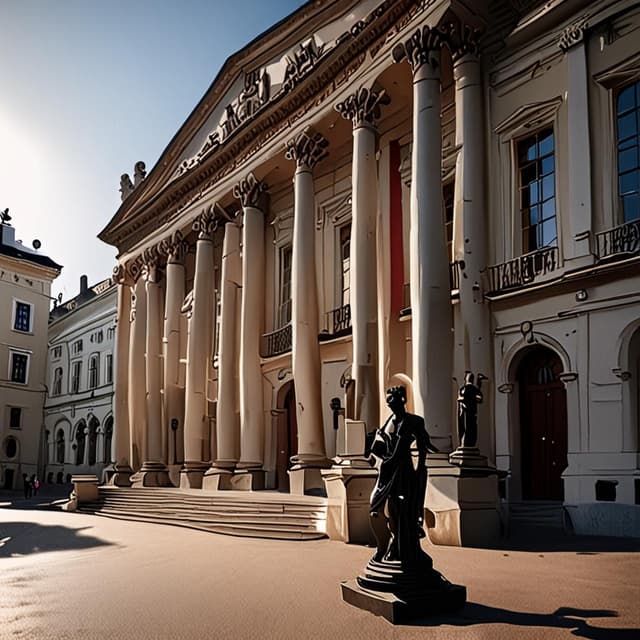
| Type | Music conservatory |
| Place | Salzburg, Austria |
| Website | |
| Directors | Matthias Schulz (2017-present) |
| Founded by | Konservatorium für Musik und dramatische Kunst zu Salzburg |
| Established | 1841 |
| Named after | |
| Notable alumni | Herbert von Karajan • Gerlinde Dill • Othmar Costa • Siegfried Führlinger |
| Fields of study | Music composition • Performance • Musicology • Pedagogy • Dance |
| Notable faculty |
The Mozarteum is an internationally renowned music conservatory and cultural institution located in the city of Salzburg, Austria. Founded in honor of the city's most famous son, Wolfgang Amadeus Mozart, it has become a symbol of Austria's rich musical heritage and an influential force in classical music education and performance.
Wolfgang Amadeus Mozart was a prolific and influential composer of classical music, born in Salzburg in 1756. During his short life, he produced numerous symphonies, concertos, chamber music, and operas that became some of the most beloved works in classical music. Mozart was a child prodigy and began composing at the age of five, performing in the courts of Europe and later in Vienna, where he spent the last ten years of his life.
Sadly, Mozart's life was cut short when he died at the age of 35, leaving his career and creative output incomplete. Despite his premature death, Mozart's music continued to have a significant impact on European classical music for generations to come. His bold innovations in form, harmony, and melody, as well as his ability to tap into deep emotional currents, were highly influential on subsequent composers, who strived to emulate his style and technique.
In recognition of his lasting impact on classical music and as a tribute to his birthplace, a group of music enthusiasts and philanthropists founded the Mozarteum in Salzburg in 1841. The Conservatorium became a major center for music education and performance, offering instruction in all areas of classical music, including composition, performance, and pedagogy.
Over the years, the Mozarteum has trained many renowned musicians, including some of the most prominent composers and performers of the Classical and Romantic eras. Among its illustrious alumni are Franz Liszt, Anton Bruckner, Gustav Mahler, Hugo Wolf, and Richard Strauss, all of whom were deeply influenced by Mozart's music and sought to cultivate his spirit in their own works.
In addition to its educational activities, the Mozarteum also plays a central role in promoting classical music in Salzburg and beyond. It hosts a wide array of concerts, recitals, and festivals, including the annual Salzburg Festival, a major event in the European cultural calendar. It also serves as a repository for Mozart's music, preserving and promoting his legacy for future generations.
Since its founding in the 19th century, the Mozarteum has evolved and expanded its mission to include music therapy, music research, and community outreach. It now comprises several institutions, including the Mozarteum University of Salzburg, the Mozarteum Orchestra, and the Mozarteum International Foundation. Together, these institutions continue to honor and uphold Mozart's legacy and serve as a source of inspiration and enrichment for all those who love and practice classical music.
Though Mozart's career was tragically cut short, his music continues to thrive through the efforts of the Mozarteum and its many accomplished and devoted alumni. Through its educational, cultural, and philanthropic activities, the Mozarteum plays a vital role in preserving and advancing the musical heritage of Austria and the world.